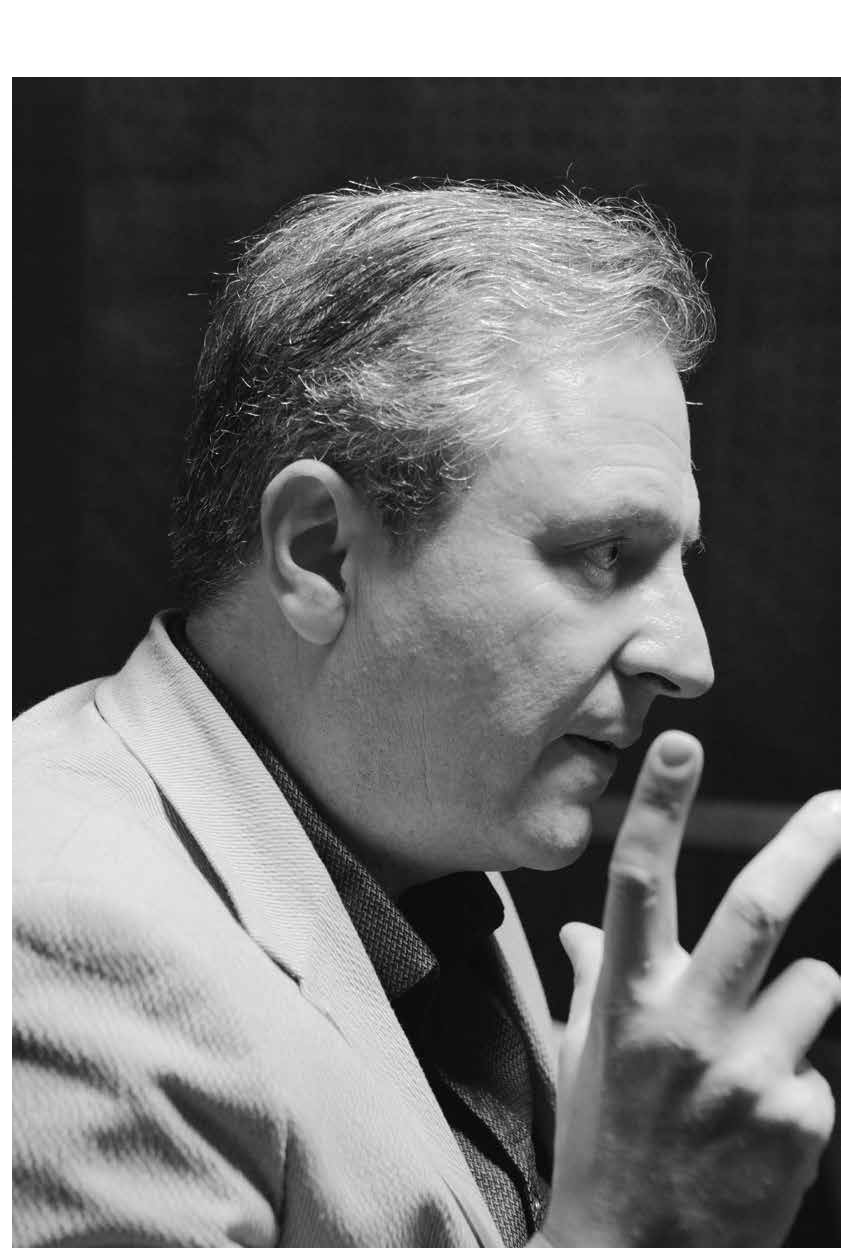Issue:

Stefano Carrer, who is from a small town in northern Italy between Milan and Lake Como, was born to middle-class parents in the early 1960s. In his youth he threw himself into a study of ancient Greek, “a very beautiful language, but a luxury. I regret not studying German,” he says.
He knew early on that he wanted to be a journalist, and made his choices accordingly: “I never wanted to make much money, I just didn’t want to do repetitive things. And maybe I was idealistic. I wanted to contribute, to spread news. And so I thought it would be good for my journalistic aspirations to have a background in law.” He took a law degree from the University of Milan, and a Master of Journalism at around the same time from the Institute for Journalism of Milan.
The beginning of his career in journalism was marked by encounters with two men who went on to become among the best-known Italians in the world. At the tail end of a year of compulsory military service, Carrer joined a lifestyle magazine focused on horse riding. His first assignment was to travel to the countryside with a photographer named Tiberti, who he later learned was a member of Operation Gladio, a clandestine “stay-behind” NATO operation for armed resistance in the event of a Russian invasion of Italy.
Together they drove to Tuscany, near Siena, to write about a blind young horseman known for terrorizing the countryside on his steed. Carrer’s editor later titled the piece “I See with the Eyes of my Horse,” and it became the first time that Andrea Bocelli, now a legendary opera sing-er, made the national press. “Bocelli gave me some tapes of his singing that I passed on to a music company in Milan,” he remembers.
The tapes were instrumental in Bocelli’s discovery, and Carrer still has the tenor’s letter of thanks. The remarkable story is capped off by the fact that Carrer was hired at the magazine by none other than Pierluigi Collina, a frustrated media company manager who later quit and went on to become the single most recognizable soccer referee in the world, officiating the 2002 Korea Japan World Cup final between Brazil and Germany.
Carrer traveled to New York to join the large community of Italian journalists there and was soon stringing for Il Sole 24 Ore, a large Italian financial daily rivaled only by the Financial Times. His first trip to Japan in 1991 was as a freelance international courier, a wonderful way to globetrot in which one called a number and chose a destination, paying perhaps $75 for a round-trip ticket in exchange for transporting documents and no checked luggage. Unfortunately, the system came to an end after 9/11.
He continued to write for Il Sole 24 Ore after returning to Italy, officially joining in 1993 to cover international finance and commodities. From 2000, Carrer’s reporting was increasingly Asia-oriented, and he became the de facto Asia correspondent from 2006 to 2009.
Carrer was based in Italy but on vacation in Tokyo when the triple disaster struck in March 2011, and he extended his stay to cover the unfolding events in Tohoku and Tokyo. “I noticed that Japanese authorities were not particularly efficient in the first few days. Japan works best when the situation is under control, when the dimensions of the disaster are known and resources can be allocated according to an understanding of the big picture,” he says.
One week after 3/11, Carrer found himself being contacted for comment by other international news outlets, as not a few reporters had repaired to Osaka to do their jobs. His interviewers, in search of panicked on-the-ground reporting, were disappointed by his calm answers and cut things short. “In one interview I told them, ‘The only thing I am at risk of here so far is getting fat from the strange vending-machine drinks until more water arrives.’”
Carrer wonders what life as a foreign correspondent might have been like in the pre-internet age, given the time lag and the mechanics of filing a story in those days. To keep up with the demands of modern journalism, and to find an outlet for reporting that doesn’t make it to the printed page, Carrer taught himself video journalism on the fly, both shooting and
editing, and has made more than 400 short videos in two years that can be seen on the “Pianeta Giappone” section of Il Sole’s website. They cover a wide range of topics, from culture to politics and finance.
As Il Sole 24 Ore’s East Asia Correspondent since April 2013, Carrer has been watching recent developments in Japan with great interest, and sees parallels with his own country: “Italy is constitutionally committed to repudiation of war as a means to solve international disputes,” he says. “But with our Italian planes, we ended up bombing Baghdad, Belgrade, Tripoli. We were dragged into counterproductive foreign wars by our allies, only to realize later that it was against our national interest. I worry that Japan may also lose the way to stay out of conflict that has until now served its national interest well.”
As this interview at the Club wound down, Carrer insisted on visiting the hallway leading to the elevators. “I’m impressed by Mishima, and of course by Kenzaburo Oe,” he says, indicating the portraits of past visitors. “But here! . . . maybe the most important guest of the FCCJ’s last 70 years: Roberto Baggio!”
“I worry that Japan may lose the way to stay out of conflict . . .”


